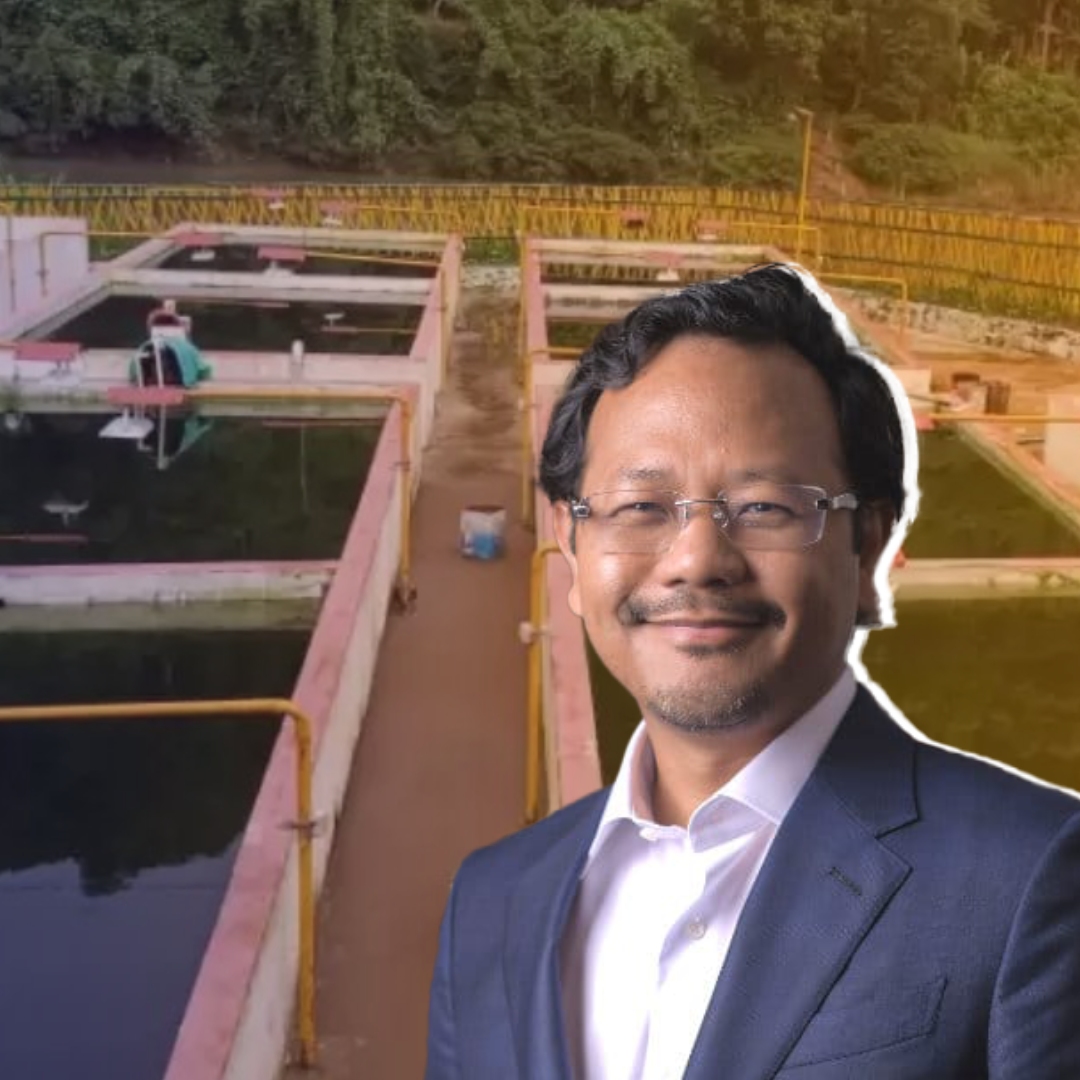
Image Credit: Ferdinand Rani
Meghalaya Environment Minister Deploys Unique Initiative To Revive Mining-Affected Rivers
Meghalaya, 10 April 2022 10:27 AM GMT | Updated 10 April 2022 10:43 AM GMT
Creatives : Ankita Singh
A literature lover who likes delving deeper into a wide range of societal issues and expresses her opinions about the same. Keeps looking for best-read recommendations while enjoying her coffee and tea.
Meghalaya's Forest and Environment Minister James P.K. Sangma undertook a unique community-driven initiative to revive the dying river, in a process called phycoremediation, which looks at the use of micro-green algae to restore the pH level of the water - in essence reducing its toxic acidic nature - by absorbing acid mine drainage.
Amidst the lush green slopes of Jaintia Hills in Meghalaya, it is difficult to miss the flowing azure blue-coloured Lukha river, which might almost present a pristine scenery for anyone viewing the river.
However, the river suffers from high levels of toxic acidic pollution — caused due to mining activities in the region — which is a massive threat not only to the biodiversity of the river but also to the livelihood of areas through which the river flows.
In such dire circumstances, Meghalaya's Forest and Environment Minister James P.K. Sangma undertook a unique community-driven initiative to revive the dying river, in a process called phytoremediation, which looks at the use of micro-green algae to restore the pH level of the water — in essence reducing its toxic acidic nature — by absorbing acid mine drainage.
"The idea is to empower the local communities as much as possible to engage with such an initiative. In fact, a community-led organisation called the Hynriew Shnong Wah Lukha Association had taken active steps in 2018 to bring awareness and work towards reviving the river," Sangma said.
"The river is a property of the people and their engagement becomes absolutely essential. So far, we have seen really positive results in the pilot phase and the river seems to be slowly coming back to life. We want to scale such projects even for other polluted rivers of the state, " he added.
Currently, under the aegis of the minister, the Forest and Environment Department has collaborated with Delhi-based Trinity Impex International which specialises in matters related to water management.
This is supplemented by research and consultation with scientists from Israel and the United States, who have pioneered techniques to solve water pollution using natural means.
"With the tremendous work that has been put in, the water of the Lukha is now inching towards normality. Normal water has a pH value of 7 and current reports show that Lukha's water is at 6.5, suggesting the acidity has come down drastically," Sangma said, adding that algae cultivation is being undertaken in 14 different ponds at Sonapyrdi village in East Jaintia Hills district.
Jaintia Hills, which houses the Lukha river, has previously been in the news for its rat-hole mining technique — a practice where small and narrow tunnels are dug for miners to extract coal. The risky work conditions come with the added hazard of using unscientific techniques, due to which acid mine drainage poses a threat to water bodies as well.
Following a petition, the National Green Tribunal had put a ban on unscientific coal mining in the state in 2014, which was lifted again in 2019 after a Supreme Court verdict to allow mining in privately and community-owned land, subject to permissions from concerned authorities.
Ever since, Chief Minister Conrad K. Sangma has advocated for scientific mining in the state, asserting recently that the same will commence in 2022, thereby checking any hazardous practices and restricting possibilities of pollution.
Also Read: Kashmir Reports Record Tourist Arrivals This Year, Highest In A Decade
 All section
All section













